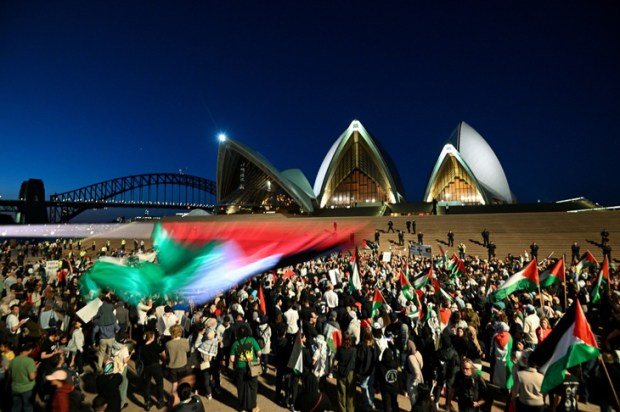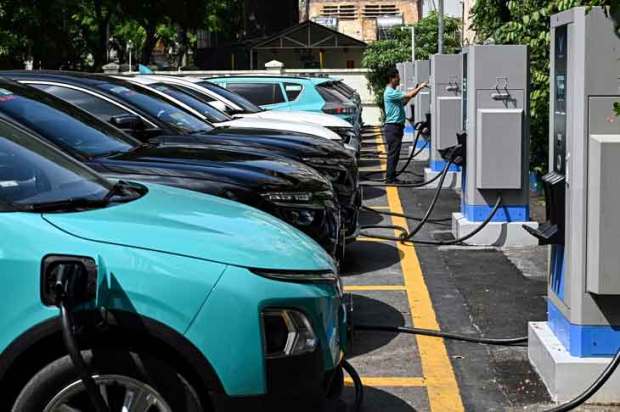Finally, the referendum is over and the people have spoken. Predictably, the ACT was the only jurisdiction in the nation to vote Yes. Yet again it has proven to be the national epicentre of intellectual arrogance and collectivist ideology.
Like the ACT, big business also demonstrated how out of touch it is with the thinking of the majority of Australians, many of whom are its customers. Of the top 20 companies listed on the Australian Stock Exchange, 13 publicly expressed support for the Yes23 campaign, some donating millions of dollars.
Other than currying political favours it is unclear how these actions related to their companies’ businesses or whether they had a mandate from shareholders. As the saying goes, ‘Virtue is vanity dressed up and waiting for applause’.
Disappointingly for the indigenous commentariat who now label No voters ‘uneducated’, the majority were not intimidated by the misinformation and condescension of the Yes23 campaign. Australians knew their good intentions were being exploited, but refused to yield to a bullying agenda which sought to permanently divide their nation based on tenure.
But blaming poorly educated voters and a badly run Yes campaign for the emphatic No result misses the point. This was a racially based idea and should never have been the subject of a referendum.
Whether voters lived in major cities, town camps or remote communities, they worked out that when more than $40 billion is spent annually on so few to such little effect, something is fundamentally wrong.
They also knew that with 48 land councils, 243 native title bodies, 35 regional councils, over 122 Aboriginal agencies and 145 health organisations, along with two peak bodies which enjoy seats at the highest tables in the land, only the elite would benefit from yet another voice. Like Albert Einstein, the majority concluded doing the same thing over and over and expecting a different result is insanity.
That said, Australians accept there is a gap to close. That despite indigenous health expenditure being 35 per cent higher per head than for the general population, indigenous life expectancy in remote areas is seven to eight years less than Aborigines living in the cities. Indeed, it is in out-of-sight remote communities where child neglect and sexual abuse have reached epidemic proportions.
This is where, between 2008 and 2017, the years following the much vaunted, ‘healing’ national apology, the rate at which indigenous children were removed from their families increased by 80 per cent. In the future, are these children to be described as a stolen generation?
It is a national scandal that of the $4.1 billion spent on community support and welfare services, the largest proportion (29 per cent), is spent on child protection and out-of-home care, compared with 6.5 per cent for the non-indigenous population. Many of these children are returned to the same abusive environments.
The inescapable truth is that, despite hundreds of billions of well-intended taxpayer dollars, Australian Aborigines are over-represented in the criminal justice system, have disproportionately higher suicide rates, suffer chronic alcohol and substance addiction, related family violence and sexual abuse, and live in overcrowded housing.
And when it comes to education, the average attendance rate for indigenous primary school students is a deplorable 52.1 per cent, while for secondary school students it’s a too low 72 per cent.
In many remote communities English is a second language.
These children are innocent victims of the prevailing tyranny of low expectations which leading No advocate, Nyunggai Warren Mundine, likens in his book, In Black and White, to the colonial oppressors who argued that denying Aboriginal people the privileges of modern society and leaving them to follow their traditional ways, was in their best interests.
Veteran Far North Queensland MP, Warren Entsch, sees these failures first-hand. He told parliament that prominent indigenous leader and principal Voice advocate, Noel Pearson, received at least $550 million in government funding for his ‘pet projects’ but there is little to show for it. Entsch told parliament that, ‘Noel has significant influence over indigenous affairs…’ but, ‘Many of these remote communities that Noel has used as policy experiments remain dysfunctional.’
This mindset is reflected in the post-referendum sulking from pro-Voice, indigenous leaders. By referring to the ‘role of racism and prejudice against indigenous people in this result’, they not only confirm their movement is rooted in victimhood, but give support to those who argue that the Aboriginal industry is better at voicing grievances than listening to other views.
Pre-eminent No case advocate, Senator Jacinta Nampijinpa Price, says, ‘We need to step away from grievance. Attempting to bring about change through grievance has evidently got us nowhere.’ As a practical measure, she moved a motion in the Senate for a royal commission into the sexual abuse of indigenous children. Inexplicably, despite credible, horrific evidence, Labor, the Greens and independent senator, David Pocock, rejected it. Who are they protecting and why?
The same can be asked of the Australian National Audit Office. When the federal opposition called for the ANAO to investigate alleged corruption and fraud involving millions of dollars within Australia’s largest indigenous legal organisation, the North Australian Aboriginal Justice Agency, it was told the timing was ‘inopportune’. Who is it protecting and why?
Now we learn the National Indigenous Australians Agency is facing fifteen separate cases of alleged fraud worth $12 million within its grants, including $607,000 for ‘understanding treaty and truth-telling’.
Fortuitously, the half-a-billion dollars referendum has focussed attention on an insatiable indigenous swamp, where the main beneficiaries seem to be Aboriginal elites, government bureaucrats, special interests and lobbyists.
The Coalition wants a comprehensive audit of all this. Should such a review proceed, it is critical that intended outcomes be measured against outlays. This audit is legitimate and long overdue. To deflect it as being politically motivated and racist is to hold all Australians in contempt. The time has come for truth-telling of the contemporary kind.
Got something to add? Join the discussion and comment below.
You might disagree with half of it, but you’ll enjoy reading all of it. Try your first month for free, then just $2 a week for the remainder of your first year.













